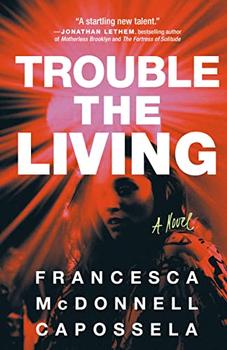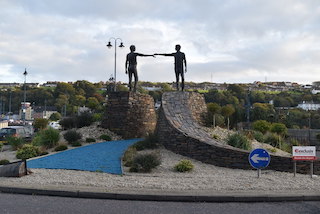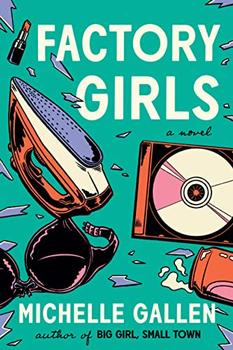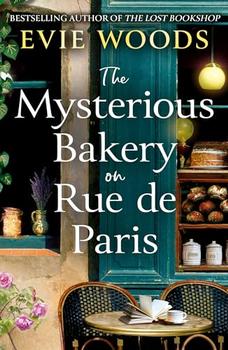Summary | Excerpt | Reading Guide | Discuss | Reviews | Beyond the book | Read-Alikes | Genres & Themes | Author Bio

A Novel
by Francesca McDonnell CaposselaFrom Northern Ireland to Southern California and back―a mother and daughter confront the violence of the past in an enthralling novel about the possibility of love and redemption during the most transforming and unsettled times.
It's the final years of the Troubles in Northern Ireland, and Bríd and her sister, Ina, try to maintain a stable life in a divided country. Pushed by her mother's fanaticism and a family tragedy, Bríd joins the IRA and makes a devastating choice. Frightened and guilt ridden, she flees, leaving behind Ireland and her family for America.
Years later, her guilt and tragic history still buried, Bríd is an overprotective mother raising her sensitive daughter, Bernie, in Southern California. Growing up amid a different kind of social unrest, Bernie's need for independence and her exploration of her sexuality drive a wedge into their already-fragile relationship. When mother and daughter are forced to return to Northern Ireland, they both must confront the past, the present, and the women they've become.
As they navigate their troubled legacies, mother and daughter untangle the threads of love, violence, and secrets that formed them―and that will stubbornly, beautifully, bind them forever.
The narrative touches on many themes: mother/daughter relationships, domestic and political violence, sexuality and dysfunctional families, to name just a few. A book that covers this much ground might feel overstuffed, but in this case Capossela weaves together these thematic threads so seamlessly that only after the conclusion does one truly recognize and appreciate the novel's density. The real highlight, though, may be the author's skill with character development. At first Brid and Bernie seem swept away by people and events—passive players trying to live up to others' ideals. In the end, though, each is empowered to decide her own destiny; they assert themselves and choose the path they feel is best, no longer controlled by their mothers' expectations...continued
Full Review
(543 words)
This review is available to non-members for a limited time. For full access,
become a member today.
(Reviewed by Kim Kovacs).
 Francesca McDonnell Capossela's novel Trouble the Living is in part set in Northern Ireland during the waning days of the Troubles, a 30-year period of violence brought mostly to an end by the signing of the Good Friday Agreement on April 10, 1998.
Francesca McDonnell Capossela's novel Trouble the Living is in part set in Northern Ireland during the waning days of the Troubles, a 30-year period of violence brought mostly to an end by the signing of the Good Friday Agreement on April 10, 1998.
In 1921, at the end of the Irish War of Independence, Ireland was partitioned into two self-governing territories: the predominantly Protestant Northern Ireland and the mostly Roman Catholic Irish Free State to the south. The Irish Free State was declared a Republic in 1949 and became an independent country (now called the Republic of Ireland), but Northern Ireland remained part of the United Kingdom.
Roman Catholics living in Northern Ireland experienced discrimination in employment, ...
This "beyond the book" feature is available to non-members for a limited time. Join today for full access.

If you liked Trouble the Living, try these:

The End of the World Is a Cul de Sac
by Louise Kennedy
Published 2024
Brilliant, dark stories of women's lives by "a very major talent" (Joseph O'Connor, Irish Times)

by Michelle Gallen
Published 2022
A funny, fierce, and unforgettable read about a young woman working a summer job in a shirt factory in Northern Ireland, while tensions rise both inside and outside the factory walls.



What really knocks me out is a book that, when you're all done reading, you wish the author that wrote it was a ...
Click Here to find out who said this, as well as discovering other famous literary quotes!